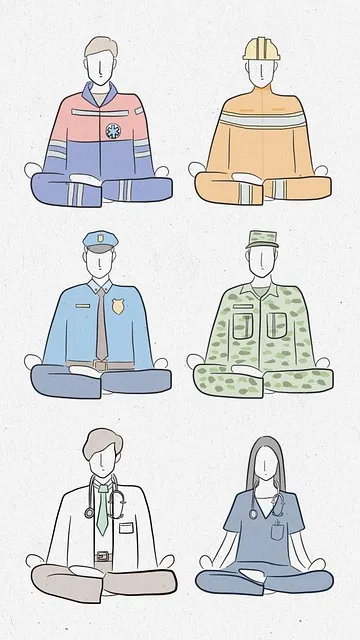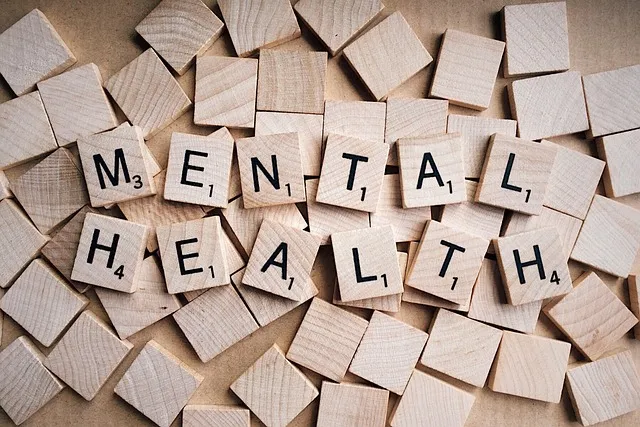Highlands Ranch Kaiser Permanente psychiatry offers specialized mental wellness group facilitation, creating safe and inclusive environments for community members to address specific mental health concerns. Facilitators guide participants through self-awareness exercises like mindfulness meditation and reflective journaling, encouraging emotional expression and building resilience. Cultural sensitivity is paramount, ensuring every member feels validated and fostering honest sharing. The department's comprehensive programs aim to increase mental health awareness, promote early intervention, and prevent issues, ultimately enhancing community outcomes. Effective group facilitation combines open-ended questions, cultural understanding, self-care practices, and a supportive atmosphere to empower individuals on their mental wellness journeys.
In today’s digital era, mental wellness group facilitation techniques play a pivotal role in fostering community and enhancing well-being. This article explores the art of leading supportive group sessions, with a special focus on the expertise offered by Highlands Ranch Kaiser Permanente Psychiatry. We’ll delve into key strategies for creating safe spaces, encouraging open dialogue, and promoting healing. From understanding participant needs to implementing best practices, these techniques are designed to revolutionize mental health support in your community.
- Understanding Mental Wellness Group Facilitation
- Key Techniques for Effective Group Sessions
- The Role of Highlands Ranch Kaiser Permanente Psychiatry
- Best Practices and Tips for Group Facilitators
Understanding Mental Wellness Group Facilitation

Mental wellness group facilitation is a specialized skill that involves guiding and supporting individuals through collaborative discussions and activities aimed at enhancing their mental health. In Highlands Ranch, Kaiser Permanente psychiatry offers such programs, designed to foster a sense of community while addressing specific mental health concerns. These groups are not merely talking sessions; they’re carefully crafted environments where participants can learn from each other’s experiences, share coping strategies, and build resilience.
Effective group facilitation techniques go beyond simple communication. They include creating a safe and non-judgmental space, ensuring active participation through interactive exercises, and promoting open dialogue. Facilitators play a crucial role in balancing diverse perspectives while guiding the group towards achieving shared goals. By combining education on mental health topics like stress management and confidence boosting with practical tools and peer support, these programs are transforming lives in Highlands Ranch and beyond.
Key Techniques for Effective Group Sessions

In facilitating mental wellness group sessions at Highlands Ranch Kaiser Permanente psychiatry, a blend of key techniques emerges as essential for creating an engaging and therapeutic environment. Firstly, incorporating self-awareness exercises provides individuals with tools to introspect and express their emotions openly. Techniques such as mindfulness meditation or reflective journaling encourage participants to explore their thoughts and feelings, fostering deeper understanding and connection within the group.
Additionally, prioritizing cultural sensitivity in mental healthcare practice is paramount. Facilitators should be adept at recognizing and respecting diverse cultural backgrounds, ensuring every member feels validated and heard. This approach not only enhances inclusivity but also encourages honest sharing, ultimately enriching the overall therapeutic experience for everyone involved.
The Role of Highlands Ranch Kaiser Permanente Psychiatry

The Highlands Ranch Kaiser Permanente Psychiatry department plays a pivotal role in promoting mental wellness within the community. This healthcare facility is dedicated to providing comprehensive psychiatric care, focusing on both individual therapy and group-based interventions. Their expertise lies in designing and facilitating Mental Health Education Programs that empower individuals to take charge of their mental well-being. These programs often incorporate innovative communication strategies, fostering a supportive environment where participants can openly discuss their experiences and challenges related to mental health.
Through these initiatives, Highlands Ranch Kaiser Permanente Psychiatry aims to increase Mental Health Awareness, encouraging early intervention and prevention. By offering group facilitation techniques, they create safe spaces for connection and recovery, ultimately contributing to improved mental health outcomes within the community.
Best Practices and Tips for Group Facilitators

Effective group facilitation is an art that can significantly enhance mental wellness support. When leading a group at Highlands Ranch Kaiser Permanente psychiatry, facilitators should aim for an inclusive and safe environment where every member feels valued and heard. Encouraging active participation through open-ended questions and fostering meaningful conversations can create a powerful sense of community. Group members often benefit from sharing personal experiences, which can lead to valuable insights and support.
Some best practices include prioritizing cultural sensitivity in mental healthcare practice, ensuring facilitators are well-versed in various cultural perspectives to accommodate diverse participants. Burnout prevention is also crucial; facilitators should be mindful of their own well-being and encourage healthy boundaries. Regular self-care practices, such as mindfulness techniques or short breaks during sessions, can help maintain the energy and focus needed to provide exceptional support for the group’s mental health awareness journey.
Mental wellness group facilitation plays a vital role in supporting individuals navigating mental health challenges. Techniques like active listening, emotional validation, and structured agendas, as showcased by Highlands Ranch Kaiser Permanente psychiatry, empower facilitators to create safe, inclusive environments. By adopting best practices and staying informed about the latest research, professionals can enhance these sessions, fostering meaningful connections and positive outcomes for group members.






